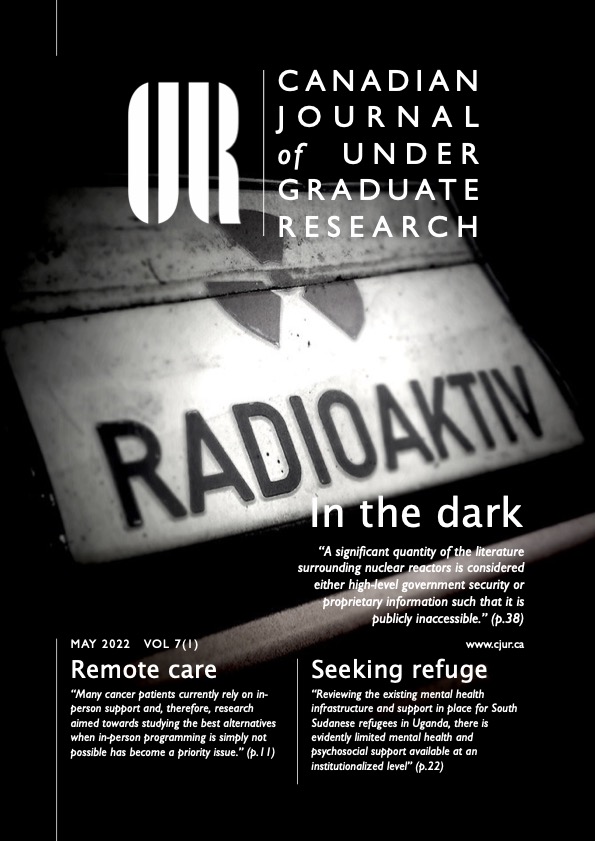The impact of online programming on cancer patients
Abstract
In this study, a qualitative design was used to examine how online cancer support programming has impacted cancer patients, specifically, the effects on their physical, mental, emotional, and spiritual well-being. We also investigated how cancer support programming could be improved from the perspectives of the participants. Due to the recent COVID-19 pandemic, many organizations had to shift to an online-based approach to allow for continued access for their members. The sudden shift of moving into online programming caused a significant learning curve for organization staff, volunteers, and members. In this research we asked members how they benefited from online programming and to indicate which aspects of programming they would like to see continued post-pandemic. This study was conducted entirely online using thematic analysis to analyze responses. To facilitate this study, we recruited six participants from a cancer support organization. Once participants were recruited, they received an informed consent form, interview questions, and a consent to use data form through google forms. Participants did not have access to the interview questions until they consented to participate in the study. The interview consisted of 10 questions and took approximately 30 to 45 minutes to complete. At the end of the study, participants received a consent to use data form. Through our thematic analysis, we found five themes that reflected our participants’ experiences with online programming: social connection, positive emotions, growth and gains, challenges and difficulties, and easy accessibility. Our findings showed more positive than negative outcomes through online programming, however, there were still challenges.
Published
Issue
Section
License
Authors who publish with this journal agree to the following terms:
- Authors retain copyright and grant the journal right of first publication with the work simultaneously licensed under a Creative Commons Attribution License that allows others to share the work with an acknowledgement of the work's authorship and initial publication in this journal.
- Authors are able to enter into separate, additional contractual arrangements for the non-exclusive distribution of the journal's published version of the work (e.g., post it to an institutional repository or publish it in a book), with an acknowledgement of its initial publication in this journal.
- Authors are permitted and encouraged to post their work online (e.g., in institutional repositories or on their website) prior to and during the submission process, as it can lead to productive exchanges, as well as earlier and greater citation of published work (See The Effect of Open Access).

